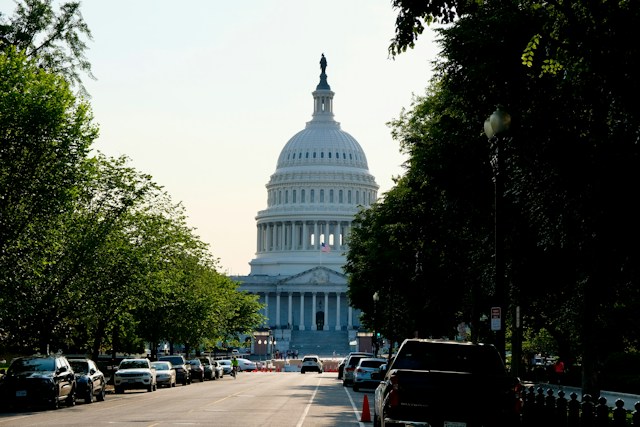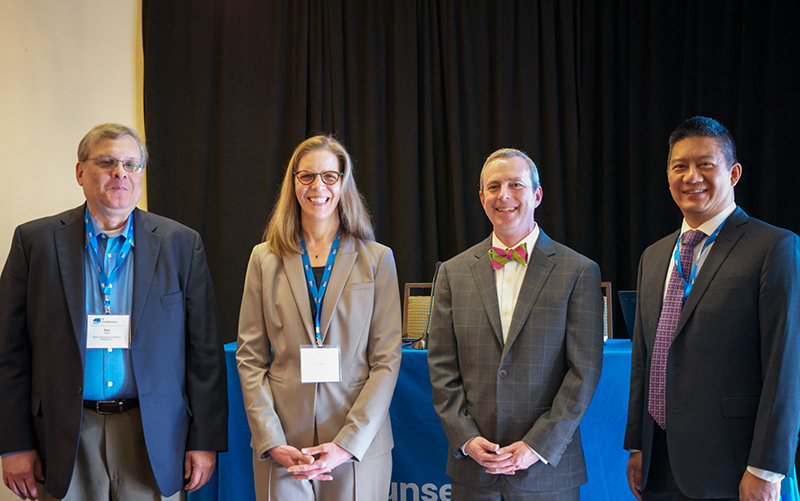Tuesday, Feb. 6 was a busy day on Capitol Hill for health legislation.
Two bills advanced through committees. The House Oversight & Investigations Committee marked up H.R. 6283, the Delinking Revenue from Unfair Gouging (DRUG) Act, and the Budget Committee approved H.R. 766, the Preventative Health Savings Act. Additionally, the need to support new antimicrobials was discussed during a Ways & Means Committee hearing on drug shortages.
The DRUG Act
Promising progress is being made on pharmacy benefit manager (PBM) reform. H.R. 6283 was marked up at the House Oversight & Investigations Committee, passing with a vote of 20–11.
“This legislation would ensure that covered PBM revenues are limited to fair market value service fees and would prohibit PBMs from charging health plans more than what they ultimately pay to pharmacies,” explained Rep. James Comer (R-KY).
The bill also prevents PBMs from steering beneficiaries towards pharmacies owned by the PBM, thus ensuring consumers can continue to go to the pharmacy of their choice. Notably, subsection D of the bill enables enforcement authorities to collect a $10,000 daily civil penalty for non-compliance.
“I’m pleased the committee is considering such important legislation to rein in these PBMs and curb these abusive practices,” said Rep. Comer.
“Rarely a day goes by that I don’t hear from constituents concerned about the high cost of prescription drugs. […] I am pleased the Committee is considering such important legislation to reign in these PBMs and curb these abusive practices,” Rep. Comer concluded.
H.R. 6283 is now awaiting consideration by the full House.
The Preventative Health Savings Act
Meanwhile, the House Budget Committee focused on H.R. 766, the Preventative Health Savings Act.
“We know, for example, that chronic conditions such as diabetes or heart disease account for about 70% of all healthcare spending in the United States,” Rep. Michael Burgess, M.D. (R-TX) wrote in an op-ed. “Government investments to address these illnesses might cost money in the short run but will save massive amounts in the future.”
“Getting better information for Congress and the public about these long-term savings and benefits is why the House Budget Committee, on which I serve, is advancing the Preventive Health Savings Act this week,” he continued.
The bill would direct the Congressional Budget Office to reflect the longer-term transformative cost-saving potential of preventive healthcare initiatives by extending the office’s analysis beyond the existing 10-year budget to a 30-year period. By doing this, the bill would effectively create a wider lens when looking at and analyzing the possible multiyear or lifelong impacts of medicines. This bill would be especially effective when it comes to one-off treatments, like new cell and gene therapies, where the shorter timelines limit the overall understanding of the cost benefits of these drugs and create issues in budgeting from decade to decade.
The bill passed 30–0 and now waits for consideration by the full House.
Support for new antimicrobials
Lastly, antimicrobials got some airtime during a Ways & Means Committee hearing on drug shortages.
“The next pandemic could be bacterial and not viral in nature,” said Rep. Drew Ferguson (R-GA) during the hearing. “And we have been working in both a bipartisan and bicameral way to address that with the PASTEUR Act that fixes a marketplace problem where we’re not able to pull drugs into the marketplace.”
The representative also noted how the majority of AMR R&D is being done by cash-strapped startups expected to work in a risky and unstable market. His sentiments were echoed by Dr. Stephen Schondelmeyer, Director of the PRIME Institute, University of Minnesota’s College of Pharmacy.
“Antibiotics are a concern,” he said, “because we have resistance issues. And many of the antibiotics we do have to work with are made in China, [which means] we’re in trouble if they put a trade barrier in place. So yes, we must focus on antibiotics, and that does involve intellectual property and stimulation of production in the U.S.”




